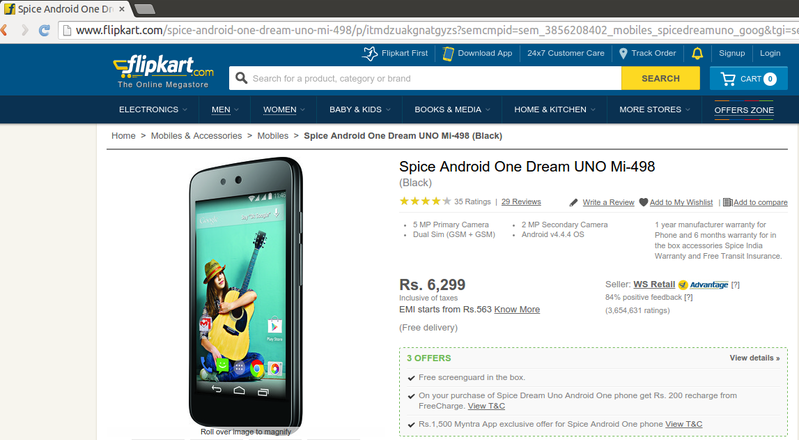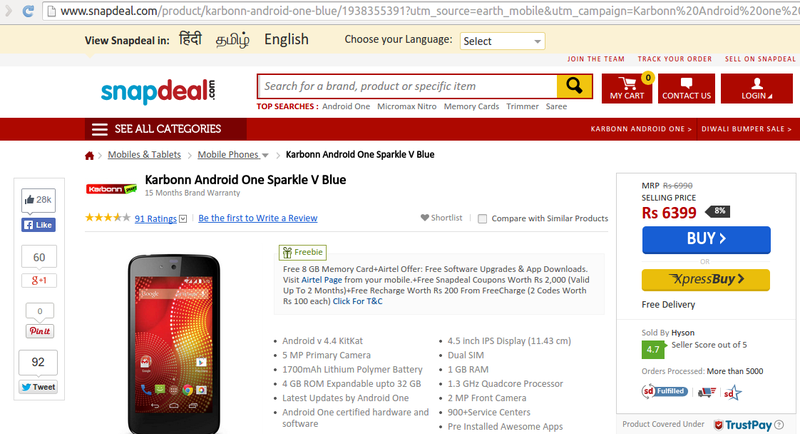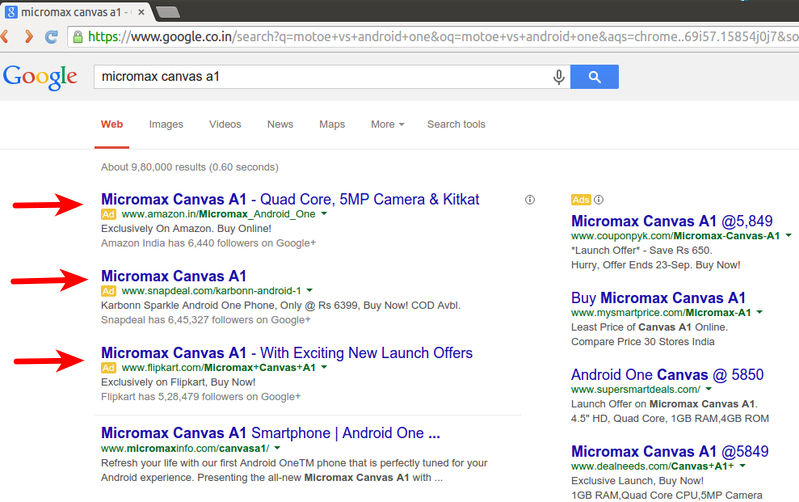Ok, taken for granted that competition is intense and running an e-commerce company is difficult especially in our country. I have friends who say they are not sure about their company existence for the next financial year. But does it mean that you have to resort to unethical tactics, in this case Black Hat Search Engine Optimization (SEO)?
I was looking for a mobile phone and was researching about its availability online. Nothing eye-catching about the results as in the picture below. The usual promoted listings and the normal search results on Google. Now had I read that this particular model of phone is available exclusively at Amazon India. I was surprised and glad to see the product listings (promoted listings/ads) at other sites like Snapdeal and Flipkart as well. The ease of shopping online at the convenience of our fingertips, coupled with deals and coupons, and also the refund policies of some these vendors. The reason for stressing on the refunds are becuase I have had to return One Laptop and One netbook and much of it was accomplished without any fuss. Interestingly I never saw those products for sale again!
Google Search results (look besides the arrows):
Now if the phone is exclusively available at only one site, what are the other two sites showing their ads for?
I clicked on three ads in separate tabs and as advertised the Amazon India site showed up Micromax Canvas A1, which they are selling exclusively, while the resulting pages were for totally different products at Snapdeal and Flipkart. Not sure if this violates any law in India, if you are aware of the laws and regulations on improper/false advertising, please drop an email or tweet to me at @terminalfix. The paid listing by Snapdeal lands on a product page for Karbonn phone, running Android one like Micromax Canvas A1. Flipkart’s listing lands on a product page for Spice Android One Dream Uno, also running Android One.
Flipkart’s ad for Micromax Canvas A1 shows Spice Android One instead:

Snapdeal’s page shows Karbonn:

Actually this is not the first time I have seen such tactics being used. Previously as documented here (Why Flipkart Is Wrong To Hijack Crossword’s Name Using Sponsored Ads), Flipkart was listing its ads for the term “crossword bookstore”. After I had pointed this out, they had removed the listings.
I am not much familiar with Google’s Terms and Conditions when it comes to violations but if a company is consistently doing it, it deserves some action big or small. Over to Google, Flipkart, Snapdeal and Micromax for more on this…
